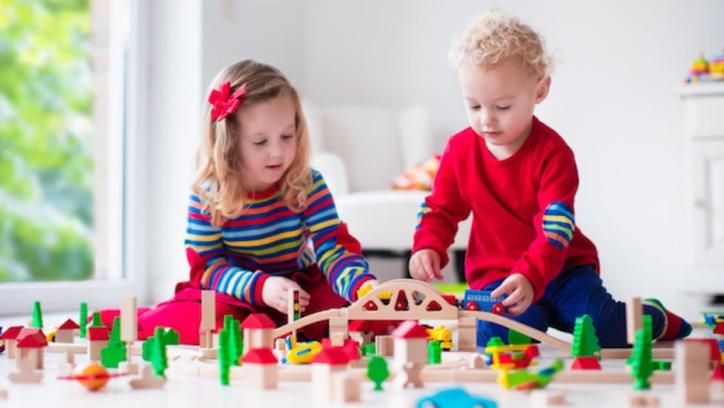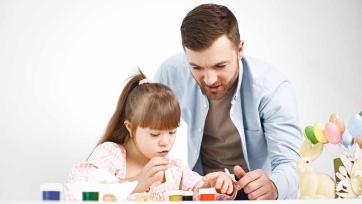What are the ingredients of a happy childhood? The answer may be simple for many parents: plenty of love and attention, quality time with friends and family, and reliable parental guidance. But is that enough? There's something to be said for getting along well with others from an early age; it builds strong relationships that can last a lifetime. However, other vital ingredients to happiness may take time to be apparent. Check out these seven habits of happy kids and see what you can do to foster them in your child.

Setting Boundaries
Happy kids have simple, manageable lives with clear boundaries. Here are five habits of happy kids:
1. They establish and stick to healthy rules and routines. Kids who have organized lives learn better and are less likely to get overwhelmed or frustrated. They have a good grasp of norms and can identify when things are off.
2. They don't take things for granted. When everything is new or exciting, kids can be tempted to keep going even when they're not feeling well or have done something wrong. Happy kids take things one step at a time, savouring progress every step of the way.
3. They set realistic goals and benchmarks for themselves. They know where you want to go and what your criteria should help you stay on track without feeling overwhelmed by the task at hand.
4. They make time for themselves every day. This doesn't mean happy kids don't interact with others—quite the contrary! They prioritize their time so they always have enough left to do what matters most.
5. They maintain an optimistic outlook on life no matter what happens."
Saying No
Some kids are naturally content, while others have to work at it. Here are the habits of happy kids:
1. permit themselves to be happy.
2. Let go of expectations.
3. Be accepting and forgiving towards themselves and others.
4. Value their time and happiness alone.
5. Mindfully choose what they focus on in life.
6. Take care of themselves physically and emotionally.
7. Connect with nature and other people positively (i.e., through play, conversation, and service).
Handling Difficult Conversations
1. Regarding difficult conversations, remember that everyone is different. There needs to be one right way to take a difficult conversation.
2. Make sure you're comfortable with the person you're talking to before starting the conversation. If you're not, you'll likely feel tense and uncomfortable.
3. Be respectful of your listener's feelings and thoughts. Do your best to understand their perspective, even if you disagree with it.
4. If a conversation becomes too difficult or argumentative, try retreating for a bit and returning later when both of you are more relaxed and ready to continue the discussion.
Taking Breaks
To have a happy childhood, it is essential to foster good habits early on. According to "The Happy Child Manifesto" by Dr Norman Doidge, taking regular breaks not only helps children learn and focus and reduce stress and anxiety. Here are some of the habits that happy kids adopt:
1) Taking regular breaks helps children learn and focus.
2) They are more productive when they take breaks.
3) They develop better concentration skills when they take breaks.
4) They are less likely to get stressed out and anxious when they take breaks.
Making Friends
making friends is one of the best ways to happiness. Making friends is essential because it teaches kids how to be social and build relationships. Here are some habits that happy kids have:
-They are willing to try new things.
-They are friendly and welcoming.
-They often have positive attitudes.
Letting Go
Many things make a child happy, but one of the most important things is to let them be themselves. Comfortable kids' habits include feeling independent, having fun and being around people they like. Here are five tips for letting go and helping your child become happy:
1. Allow them to be themselves
When we try to control our children, we're defeating our goal of making them happy. Let them be their person, and don't try to force them into roles they don't want or feel comfortable with. This will help them develop confidence and self-esteem.
2. Give them freedom
Freedom is another crucial ingredient in making a child happy. If you give your child enough space, they'll feel free to explore their interests and passions without worrying about what others might think or say. This will encourage them to take risks and be creative, which is often the key to happiness.
3. Encourage their creativity
It would help if you promoted your children's creativity since it is one of the keys to their happiness. Whether playing with art supplies or writing stories, allow them to express themselves through their creativity. This will help build their self-confidence and esteem while providing some fun activities on which they can focus when feeling down.
Putting First Things First
Do you know what habits make your kids happy? University of Virginia research shows that happy children engage in several positive health behaviours, such as maintaining a balanced diet, getting enough sleep, and spending time with loved ones.
Here are six tips for raising happy kids:
1. Eat Well: A recent study found that kids who ate junk food often were not as happy as those who ate healthier foods. Try to fill up on fruits, vegetables, whole grains, and lean protein instead of sugary snacks and processed foods.
2. Get Enough Sleep: Kids need at least eight hours of quality sleep every night to stay healthy and happy. Ensure your children get enough shut-eye by setting reasonable bedtimes and enforcing screen time rules in the evenings.
3. Spend Time With Family & Friends: Spending time with loved ones is one of the best ways to keep your child happy. Whether playing together or just taking a few minutes to chat, quality time with family is vital to a happy childhood.
4. Let Them PLAY!: According to another study, children who spent more time playing outside were more likely to be happier than their counterparts who played inside all day long. Give your little one room to run around and have fun – it's sure to keep them content!
5. Give Them Meaningful Things To Do: One way to help your child stay busy is by providing them with meaningful activities such as







